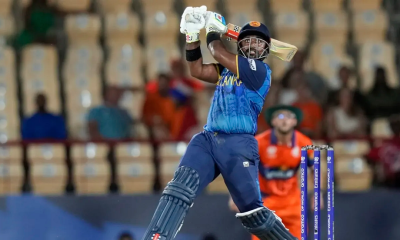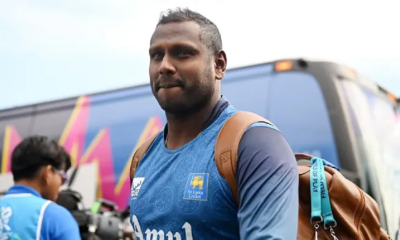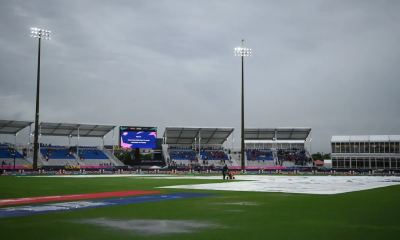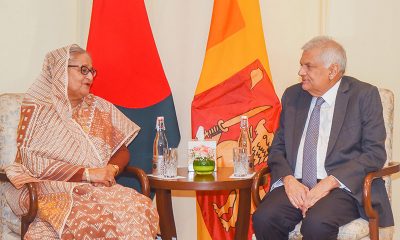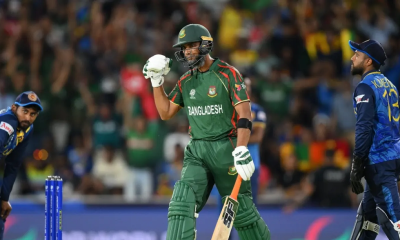News
Several parties pledge to ensure rights of LGBTQ community in Sri lanka
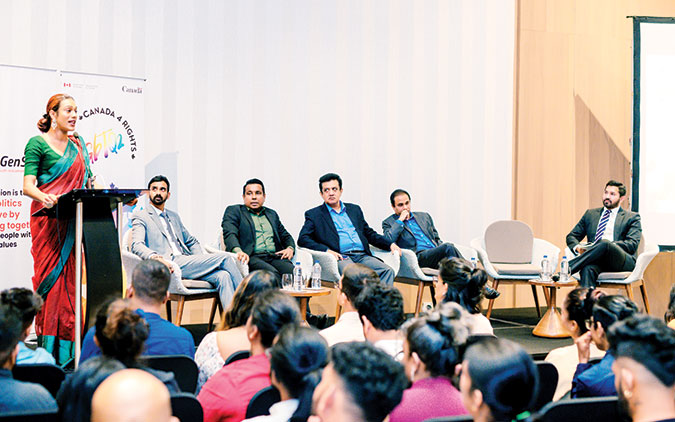
Marking a historic day in Sri Lankan politics, representatives from several major political parties came together to discuss their views on ensuring the rights of LGBTQ Sri Lankans.
Ceylon Workers’ Congress Leader, Minister Jeevan Thondaman, SLPP MP Premnath C. Dolawatte, SJB MP Mayantha Dissanayake and Freedom People’s Congress MP Prof. Charitha Herath shared their views during adiscussion jointly hosted by NextGenSL and the Canadian High Commission to Sri Lanka. Attorney-at-Law Aritha Wickramasinghe, Equality Director of iProbono moderated the panel discussion.
Premnath Dolawatte, who recently presented a Private Member’s Bill to Parliament seeking to decriminalise LGBTQ Sri Lankans, said he was hopeful that the majority of MPs in the House would support his Bill and join the effort to protect the rights of the LGBTQ community.
“I know the ultimate fight should be for non-discrimination and decriminalisation of the LGBTQ community is only one aspect of it. But, we must start somewhere,” Dolawatte said, sharing his views at the event.
“Minister Ali Sabry has assured that the government will support the motion. Minister Prasanna Ranatunga has also communicated to me that the ruling party will back the Bill. So, I am hopeful that the motion will secure a majority in Parliament. However, it is now with the Attorney General’s Department and those who are aware of the system know that getting a document out of the AG’s Department is no easy task. Also, getting a private member’s Bill passed in Parliament is also a time-consuming process. But, with your support, I am confident that we will be able to get this done,” Dolawatte said.
MP Mayantha Dissanayake from the Samagi Jana Balawegaya said he was in favour of the Private Member’s Bill presented by Dolawatte. “We are a progressive party and we understand the need for change. I briefly spoke to our party leader, Mr. Sajith Premadasa, and shared my views on this matter with him. We haven’t made a formal policy statement on this yet, but we are in favour of this because we want to do the right thing by the country.”
“When this is presented to Parliament, there will be stiff resistance from many quarters. That’s something we must expect. But I, as a Parliamentarian and e person who values human rights, will champion this cause within my party and within our parliamentary group. There are many countries in the world that have made progressive steps in this regard and we must follow those examples,” Dissanayake added
“Addressing the concerns of religious circles will be a critically important step and I am confident that we will be able to convince them by directly engaging with the right information. For instance, this is perfectly in line with the fundamental teachings of Buddhism such as compassion and that should be the basis our engagement with Buddhist monks,” the MP said.
“We inherited a country that needed change. We must now deliver, ” Dissanayake said, adding that his traditional upbringing in Kandy would not deter him from supporting this cause.
Joining the discussion, Freedom People’s Congress MP Prof. Charitha Herath said they would support decriminalisation of same-sex relations, if and when the Bill is presented to Parliament.
“We must engage with two domains to achieve the desired results. One is the political domain and the other is the cultural domain. We can change old-fashioned political and cultural establishments through constant engagement,” Herath explained.
“The technical approach alone will not usher in meaningful change. That is why I highlight the importance of cultural discussions as well to overcome the existing barriers. Sometimes, I feel that these cultural platforms are forgotten by the younger generation.”
“If you look at this region, India has made significant progress in the recent past while we are lagging behind. We must explore the reasons for this and address them adequately,” the MP added
Minister Jeevan Thondaman, the youngest Cabinet Minister ever to hold office in Sri Lanka, countered the argument that culture was a barrier in achieving non-discrimination for the LGBTQ community in Sri Lanka
“There is more than enough evidence from the ancient history that same-sex relations existed then and they were very much embraced many, many centuries ago. There are ancient statues, literary works and many other things to prove this point. So, where did we go wrong?” Thondaman, the Leader of the Ceylon Workers Congress (CWC), asked.
“The answer is quite clear. It is the colonialisation and westernisation of our ancient civilisations. Their beliefs and values became a dominant factor and we lost many of ours.”
“Culture has never been a barrier to us. It is the colonial mindset that has become a barrier. It is time we understand the reality,” he added.
“I am a member of a minority community and a representative of a marginalised group of people, I request you to take these little victories. It will eventually lead you to the promised land. 10 years ago, a dialogue of this nature would not have been possible. Today, we are trying to sit with you and understand the gravity of this issue,” Thondaman said pledging support to legislative reforms decriminalising same-sex relations.
David Sood, Counsellor, Political and Trade from the Canadian High Commission to Sri Lanka delivered the opening remarks while Bhoomi Harendran and Kaushalya Sendanayaka Arachchi, a representative from Equal Ground shared observations from the civil society perspective.
News
CEB engineers raise alarm over power sector stability

A senior electrical engineers attached to the Ceylon Electricity Board (CEB) have warned that unresolved structural and policy issues within the power sector could threaten the long-term stability of the national grid, urging authorities to act swiftly to address mounting technical and administrative concerns.
Speaking on condition of anonymity, they said the electricity network was operating under increasing strain due to delayed infrastructure upgrades, financial constraints, and growing demand.
“The national grid is not something that can be managed casually. It requires systematic planning, preventive maintenance, and timely investment. If these are compromised, the risk to system stability increases,” the engineers said.
They noted that several transmission and substation modernisation projects were behind schedule, while ageing thermal plants continued to shoulder a significant portion of the country’s base load demand.
“Engineers are committed to ensuring an uninterrupted supply. But professional expertise must be respected in decision-making. Technical matters cannot be subjected to short-term political considerations,” the engineers added.
Meanwhile, the powerful Ceylon Electricity Board Engineers’ Union (CEBEU) echoed similar concerns, warning that failure to address long standing professional and structural issues could have serious consequences for the power sector.
In a statement, the CEBEU has said that engineers have repeatedly called for reforms that safeguard the integrity of the utility and ensure that operational decisions remain grounded in technical evaluation.
“The electricity sector is a critical national asset. Any attempt to weaken institutional safeguards or bypass professional consultation will directly impact service reliability and long-term sustainability,” the union said.
The CEBEU has stressed the importance of transparent engagement between policymakers and technical personnel, noting that morale among engineers could be affected if their concerns continue to go unheard.
Industry analysts point out that the power sector plays a central role in Sri Lanka’s economic recovery efforts, particularly as the country seeks to expand industrial activity and attract investment. Stability in electricity supply remains a key determinant of business confidence.
The senior engineer stressed d that the objective of raising concerns is not confrontation but preservation of the grid’s integrity.
“Our responsibility is to the public. Electricity powers hospitals, industries, and homes. Safeguarding the system is a national duty,” he said.
With tensions simmering within the sector, stakeholders say meaningful dialogue between authorities, engineers, and trade unions will be crucial in ensuring that Sri Lanka’s power infrastructure remains resilient in the face of growing challenges.
By Ifham Nizam
News
CB identifies 24 pyramid scams in Sri Lanka
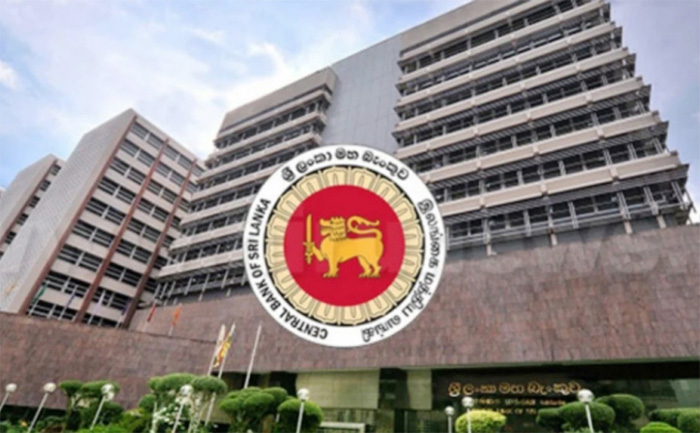
The Central Bank (CBSL) yesterday announced that investigations had identified 24 companies and applications operating prohibited pyramid schemes.
In a public notice issued under Section 83C of the Banking Act, No. 30 of 1988 (as amended), the CBSL said the following entities had been “ascertained and determined as prohibited schemes”: Tiens Lanka Health Care (Pvt) Ltd, Best Life International (Pvt) Ltd, Mark–Wo International (Pvt) Ltd, V M L International (Pvt) Ltd, Global Lifestyle Lanka (Pvt) Ltd, Fast3Cycle International (Pvt) Ltd, Sport Chain App / Sport Chain ZS Society Sri Lanka, OnmaxDT, MTFE App / MTFE SL Group / MTFE Success Lanka / MTFE DSCC Group, Fastwin (Pvt) Ltd, Fruugo Online App / Fruugo Online (Pvt) Ltd, Ride to Three Freedom (Pvt) Ltd, Qnet / Questnet, Era Miracle (Pvt) Ltd and Genesis Business School, Ledger Block, Isimaga International (Pvt) Ltd, Beecoin App and Sunbird Foundation, Windex Trading, The Enrich Life (Pvt) Ltd, Smart Win Entrepreneur (Pvt) Ltd, Net Fore International (Pvt) Ltd / Netrrix, Pro Care (Pvt) Ltd and Shade of Procare (Pvt) Ltd, SGO / sgomine.com and I.C.A.N Advertising (Pvt) Ltd and its affiliates icanonlineadvertising.com, bannercuts.com, bannercuts.lk, bannercuts.net and bannercuts.org
The CBSL said pyramid schemes, also referred to as multi-level marketing or direct selling schemes in certain instances, operate as recruitment-based programmes in which members enlist others into an expanding “downline” structure resembling a chain letter.
Under such arrangements, a portion of the fees paid by new recruits is channelled upwards to earlier participants, known as the “upline”, who are fewer in number.
The Central Bank warned that such schemes are inherently unsustainable, with the vast majority of participants at the lower tiers eventually losing their investments, while only a small number of early entrants are able to recover or profit from the funds contributed by subsequent recruits. It noted that when a pyramid scheme collapses, up to 99 per cent of those in the lower levels risk losing their money.
News
Church urges patience, warns against interference with Easter attacks probe
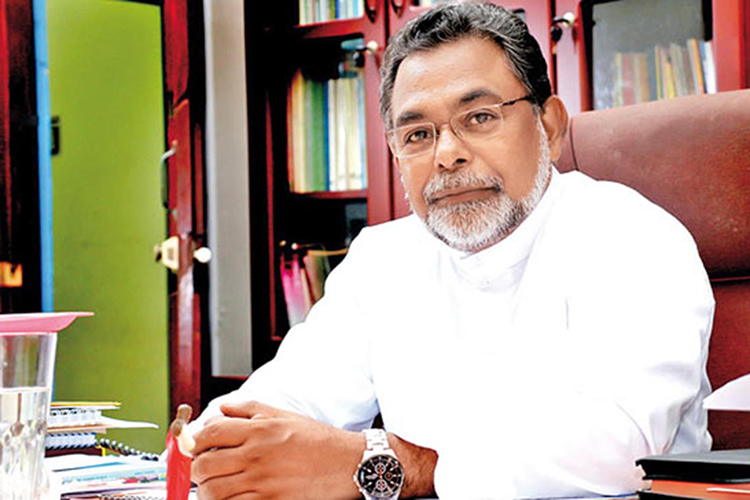
Director of Communications for the Archdiocese of Colombo, Rev. Fr. Cyril Gamini Fernando, yesterday expressed confidence that ongoing investigations into the 2019 Easter Sunday terror attacks would yield meaningful results and urged the public and all stakeholders to exercise patience and allow the probe to proceed independently.
Addressing a media briefing in Colombo yesterday, Fr. Fernando called on all parties to refrain from interfering with the investigations, warning that any attempt to obstruct the process would amount to a grave injustice to the victims.
He said he believed there was credible evidence to warrant the arrest of military intelligence veteran Maj. Gen. (Retd.) Suresh Sallay.
Referring to the coordinated bombings on April 21, 2019, which targeted churches and hotels and claimed nearly 300 lives, Fr. Fernando described the attacks as a “barbaric” act and a “massacre” that killed worshippers attending Easter services as well as individuals from different religious and ethnic communities.
By Norman Palihawadane
-

 Features6 days ago
Features6 days agoWhy does the state threaten Its people with yet another anti-terror law?
-

 Features6 days ago
Features6 days agoReconciliation, Mood of the Nation and the NPP Government
-

 Features6 days ago
Features6 days agoVictor Melder turns 90: Railwayman and bibliophile extraordinary
-

 Features5 days ago
Features5 days agoLOVEABLE BUT LETHAL: When four-legged stars remind us of a silent killer
-

 Features6 days ago
Features6 days agoVictor, the Friend of the Foreign Press
-

 Business5 days ago
Business5 days agoSeeing is believing – the silent scale behind SriLankan’s ground operation
-

 Business5 days ago
Business5 days agoBathiya & Santhush make a strategic bet on Colombo
-

 Features6 days ago
Features6 days agoBarking up the wrong tree


